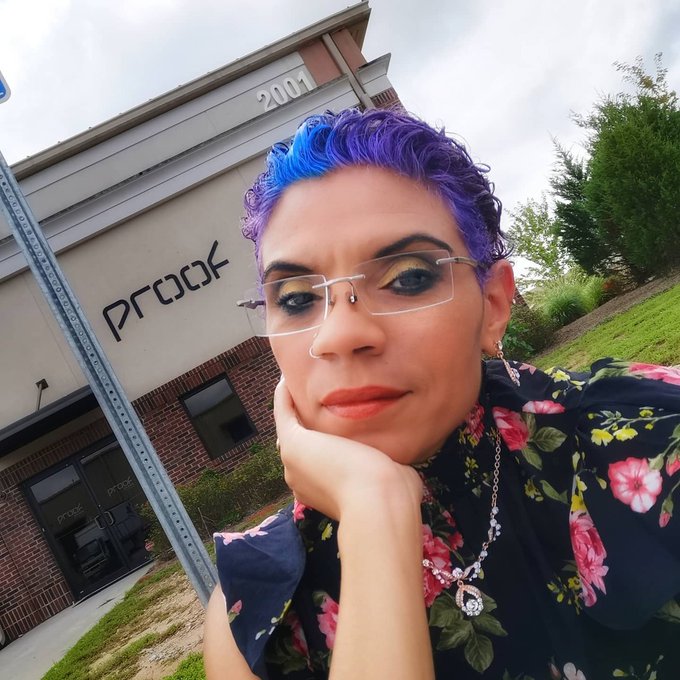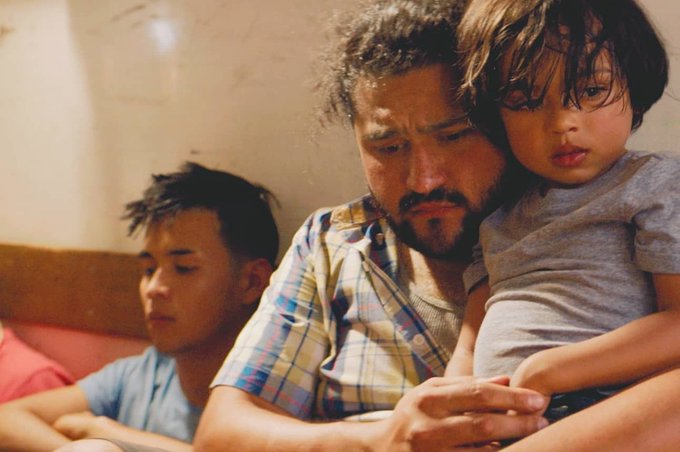
The story is a timely look at the migrant journey from Mexico into the United States, and centers on a young Guatemalan mother desperate to flee her homeland.
The synopsis for the film is as follows:
Mexico’s Route of Death is as perilous as it is risky. It is a journey no one should ever have to endure alone. Lucia is a desperate mother fleeing from her Guatemala homeland, determined to keep her young daughter safe. A new life is promising and she risks embarking on an uncertain journey across Mexico’s rugged Route of Death. Lucia must be resourceful to survive the expedition, in hopes of finding sanctuary in America. While traveling, she meets Matias, an off-handed father, making the trek with his son, Nicolas. Lucia and Matias are two different parents on one courageous journey to freedom.
They will work together through challenges, and endure the rising tides of hopelessness, to make it safely to the border, but when the harsh realities of LA RUTA push them to a breaking point, their survival instincts kick in, forcing them to make unimaginable choices. Together, they will sacrifice everything they hold close to their hearts, in order to reach the United States.
and Victoria tells us her deeply personal connection to the narrative.
Victoria, a director mentee in Ryan Murphy’s HALF initiative, tells us she has a deeply personal connection to the narrative.
“Well, I was not a migrant, I’m actually from Syracuse, New York. But it is personal in a sense to me because I was raised in a foster home from one to eight years old, with one single family living in Lafayette, New York. I was taken from them at the age of eight because my biological mother wanted to get us back. I don’t know what my life would have been like if I would have still remained with them,” she tells EURweb.
Read more of our conversation below.
View this post on Instagram
Talk about what you hope viewers are left thinking and talking about after they watch this. You hear about the migrant journey in the news, and especially since Trump has been in office, and I’m often left with wondering about the children. What happens to the kids? And this film really leaves you thinking about that.
Star Victoria: I hope that they take away the heavy feeling that the characters, the mother and the daughter, felt when they were torn apart, and that it sticks with the audience member to get them to act and to do something, whether it’s research more about the migrants’ journey here and the zero tolerance policy that existed earlier, so that they will try to reach out and find organizations that are dealing with migrants’ journeys and organizations who are trying to help the journey be safer.
Because the journey itself coming from Central America through Mexico is just very dangerous. The actual route in Mexico, it’s a true route called the Route of Death, which originally was going to be the name of the movie. I was going to call it La Ruta de la Muerte, but I just felt like having the word Route of Death in it gave a little bit too much negative incantation to the overall film, and I didn’t want that to be the main focus. I really wanted people to relate with the characters’ journey in general and the bonding of parents and children so that when the ending does hit them, they really are stunned and they just kind of sit there for a moment and take it all in and say, “What can I do to help fix this situation? How do we act to make sure that this doesn’t happen again? And the kids that are currently in cages and the parents that are currently in cages, how do we help get them together?”
We’ve all heard the stories that these kids were ripped away from their parents without even any type of system to pinpoint who the parent of the child is once they were torn apart. And then some of them go into these foster homes for a few months and stuff like that while they’re here trying to figure out what they’re going to do with the kids, and they just don’t know how to get these kids back to their parents, and it’s just horrible. They’re just creating this whole … it’s not so much of a genocide because it’s death, but it’s a genocide of the family because they’re killing the family when they’re pulling two people apart, or three or four people apart and not being able to put them back together. And what gives us the right to do that? You know what I mean?

Is this story, are these characters personal for you in any way?
Star Victoria: Well, I was not a migrant, I’m actually from Syracuse, New York. But it is personal in a sense to me because I was raised in a foster home from one to eight years old, with one single family living in Lafayette, New York, which is right outside of Syracuse, and this was the only family I knew as a kid. I mean, from one years old I was in this foster family, and they raised me and they were wonderful parents. I was taken from them at the age of eight because my biological mother wanted to get us back. I was happy and content, and I don’t know what my life would have been like if I would have still remained with them.
My life after going and living with my mother was a struggle. It was an abusive relationship. She was an alcoholic, she was dealing drugs, she was in an abusive relationship herself. All my sisters and brothers, my biological sister and brothers, they pretty much all ran away, and I just had to remain in a very abusive house verbally and physically and mentally, because I don’t know how I knew, I just knew that I had to find a way to get to college, to better myself, to break the cycle of this life that I was living.
I was very reminiscent about the foster family that I had, although when I was torn from them, I never reached back out to them because I don’t know, I just … you feel some type of way when you’re eight years old, you don’t know what to do. You’re just kind of like okay, this is my life, I’m a part of the system. The system has dictated that these people are no longer a part of my life but this person is, even though I don’t know this person, I’ve never met this person, or met them sporadically when I had to go to those social service buildings and have an hour, you meet your parents for an hour in a room with people who are standing over your shoulder making sure and watching you interact with your biological parents.
And it’s just, that’s the lifestyle I had from one to actually 10. I was in a separate foster home from eight to 10. But the first one is like, I think the point is that this is the family I grew up with. These are my parents, my brothers and sisters, this is who I knew as a kid, and then I was ripped away from them by the system. So that’s another reason why I was able to really have a very intimate connection with the story because of that.
#Repost @blackfilmandtv1
• • • • • •
Among the Emerging Directors with films @ABFF 2020 are @moisemorancy @starvictoriadirector @feliciapride @jessicasherif @itswinterdunn @tailiahbreon, @quantumkeisha, @devin_e_haqq, Jon Alston, @brittn… https://t.co/RqIsD5FfLV pic.twitter.com/jTtuZuwiGM— Star Victoria (@TheStarVictoria) August 3, 2020
Are there common misconceptions about the migrant journey?
Star Victoria: Yeah, absolutely. So it may be a little naive, but the kind of stuff that floats around, or the misconception that’s floating around at least from my perspective that I’ve heard of, was that you see these Americans that are upset about how these migrants coming over here and they’re coming over to take our jobs. That seems to be the main issue that people had. like, “It’s America, it’s our country. If they take our jobs, we’re not going to be able to work,” and blah, blah, blah.
So it was interesting to me… the idea that Americans believe that. That was what made me really want to research further into why these migrants are traveling and especially in 2018 when I saw these 6,000 migrants coming over. I mean, it was a whole massive influx of people from Central America. And you get a couple of people here and there, you don’t really think too much about it. You’re just kind of like, “You know what, they just are coming over here for whatever,” but when you get 6,000 people coming at once, getting ready to bust down the door, you have to ask yourself, why are all these people fleeing their country?
So I started doing more research into the Central American countries, especially Guatemala, and you find out that their country is just riddled with so much turmoil and extortion, and people are being just abused. Kids are being sold into slavery, used as mules, and parents are being threatened and killed if they don’t allow their kid to work for some of the cartels. And then the government itself is just a mess because of again, America butting in and trying to instill their own leaders in that country and then that fell apart, and it’s just been a rebellion ever since from the early ’70s.
And so you start to understand that they’re not coming over here for a job, they’re coming over here for the opportunity to live, to have a life without living with fear, to have a life where they can actually grow and be happy and their kids can be safe and they can prosper and just live a life without fear and turmoil. And I don’t blame them. I really don’t blame them.
What’s been most rewarding about having your short film compete in a major festival like ABFF?
Star Victoria: It’s been wonderful getting the notice that I have been struggling to get as a filmmaker. I’ve been directing films since 2004, and so I’m finally starting to get noticed by certain agents, managers, news sources, just people in general. They’re starting to see that I can direct and tell a good story that gets the audience to really pontificate about life in general.
ABFF is such a highly reputable festival. I’ve had friends who’ve attended it and had their projects in it and their careers have taken off, and so I was extremely ecstatic to get into ABF. I wish we could have actually went in person because I have gone … 2018 for another film that I actually was the assistant director on, actually it’s called Lalos House. It won the student Oscar, the director Kelley Kali, another fellow USC student. And so I mean, it was just a great time. They really champion their filmmakers. They really do everything that they can to try to help push the filmmakers to get noticed. Being an emerging director at ABFF, so far we’ve had meetings with Meet the Press, we’ve been able to have pitch sessions with the press to try to pitch our new projects. And the press includes agents, managers and whoever else is looking at these emerging directors for whatever purpose. So we’ve done that.
Even today later on, I’m actually doing … meet the executives of Netflix, another opportunity for these emerging directors to just listen to Netflix executives about pitching our stories to Netflix, and what Netflix looks for in a story that they’re trying to produce and so on and so forth. So they are really putting forth the effort to push us to get noticed and help traject our careers to the next level, and I totally appreciate that. A lot of festivals don’t do that. A lot of festivals, it’s kind of like they have a few functions and networking parties with other filmmakers. But ABFF, with the strong reputation that they have as being a very highly respectable black filmmaking festival, they are really going to bat for us. So I’m completely appreciative and ecstatic about being a part of them, and I look forward to seeing what comes out of the opportunity.
Where can people follow you or follow the journey of this film to stay updated about when it’s going to be available to the public?
Star Victoria: The easiest way for them to find out where La Ruta is going is to follow us on Instagram, which is La Ruta Film on Instagram, or they can follow me, Star Victoria Director on Instagram, or they can just go to the website, larutafilm.com, and they will find out everything about me as a director and about the film. We have a page about the screening dates and what festivals dates.
They can also follow the Facebook page which is Facebook La Ruta Film on Facebook. So there’s a bunch of ways to keep up with us to make sure they’re in the know when it comes down to La Ruta, and if they want to keep up with me and know what I’m doing with my career as I continue to move forward.
We Publish News 24/7. Don’t Miss A Story. Click HERE to SUBSCRIBE to Our Newsletter Now!





